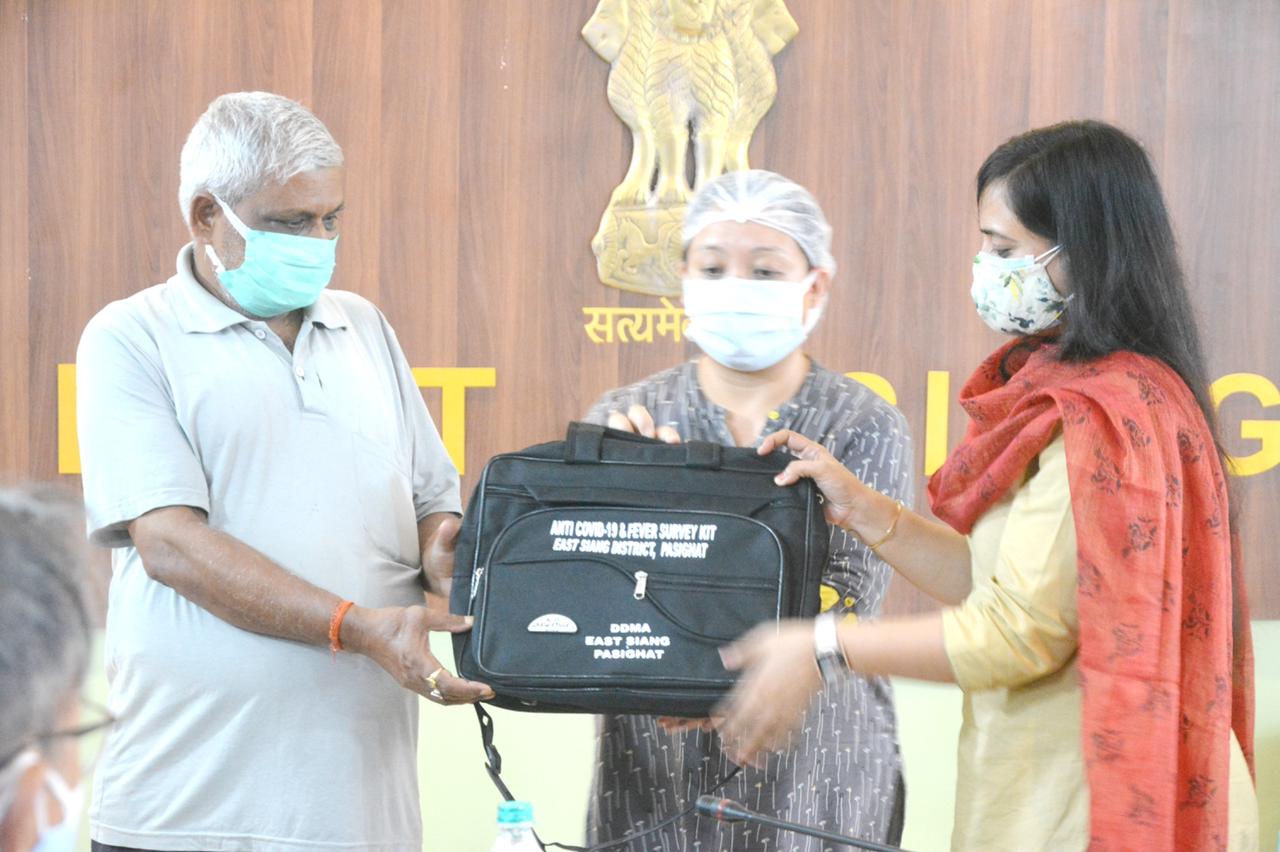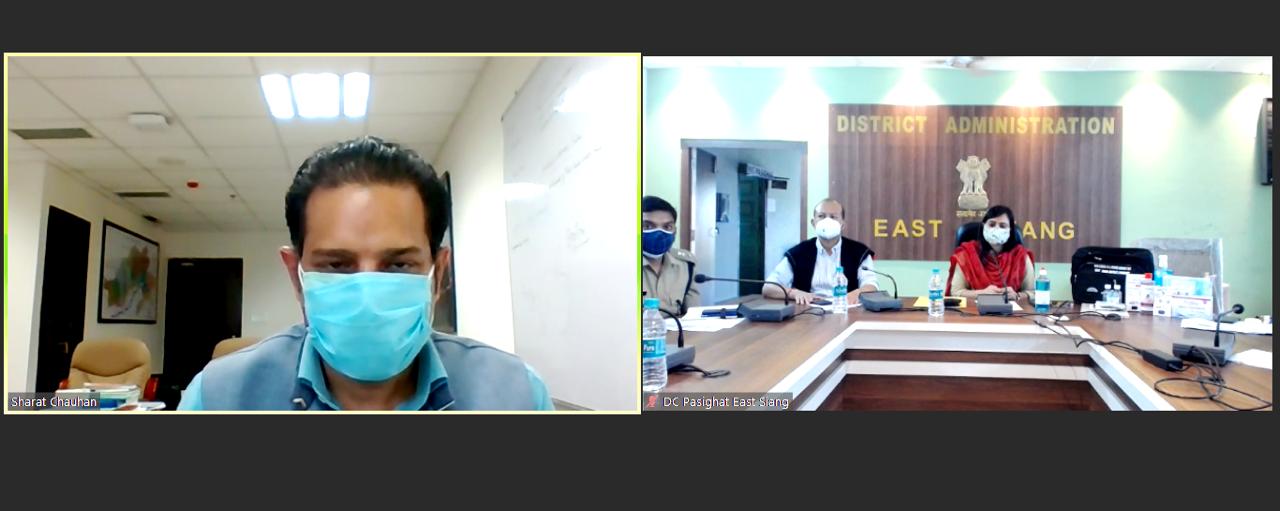Police in Delhi have collected Rs 11 crore in fines for various rule violations during the COVID-19 lockdown. The collected fine is submitted to the government treasury. However, in East Siang, a district in Arunachal Pradesh, an interesting use of the Rs 3.24 lakh collected is being made by the district administrators.
The district administration, under the aegis of District Collector Dr Kinny Singh, have set up ‘COVID Care Banks’. “We saw that the second wave of COVID-19 had a major impact on rural India. When we started mass testing in the district, we found that several residents had tested positive,” says Dr Singh speaking to The Better India.
“In the district, people were coming to the health centres complaining of fever but many of them did not even own a thermometer so checking their temperature was out of the question,” she says.

While many of the residents were testing positive for COVID-19, the good thing was that they were all either asymptomatic or had a mild case of COVID-19. This meant that a majority of those who tested positive could be kept under self-isolation at home.
“However, we realised that since these homes did not even have thermometers, staying in home isolation and monitoring their vitals would be a difficult task. This was one of the reasons why we started the COVID Care Banks,” says Dr Singh.
“In smaller districts, the connection that residents have with their circle office [tehsil office] is very strong. The administrative officers in the circle office are also involved in monitoring those who have tested COVID-19 positive,” says Dr Singh. It was therefore decided to use these circle offices as their base and set up the care banks there.
It was during one of the weekly meetings that it was decided to use these offices as a point for stocking up on medical essentials and allow people to borrow and use these resources for the duration of their home isolation. She adds here that the equipment can be taken free of cost, and returned once the patients test negative.
“We have eight circle offices and each one is equipped with 70 thermometers, 35 pulse oximeters, masks, sanitisers and one oxygen concentrator as well,” she adds.

This idea was mooted during a weekly review meeting of the district COVID core committee and Dr Singh adds that this group was constituted to keep a tab on the number of cases, vaccination drives and other issues related to COVID-19 in the district. “We were able to act swiftly on this because of how clued in the circle officers have been with their own unit,” she says.
The idea, she says, is to create an institution at the circle office level, where individuals, companies and organisations can come forward and donate equipment as well. “As of now we have Vision IAS, a coaching institute for civil service aspirants, who have come forward to help in procuring the oxygen concentrators. We urge others who are in a position to help to do the same,” she says.
Speaking about the COVID-19 violations that led to the collection of the money, Dr Singh says, “About 80 per cent of the violations were related to not wearing a mask and public spitting was a close second. The fine amount collected for both these offences is Rs 500 per person.” If there are curfew violations by individuals or shop owners, then the amount collected goes up to Rs 2000, depending on the violation.
Currently, the number of active cases in East Siang is at 159.
“Using the fine money to implement this initiative was made possible because of the timely authorisation by the State Government,” says Dr Singh. With 90 percent of the population above the age of 45 vaccinated with the first shot, Dr Kinny Singh is confident of having the entire eligible population vaccinated soon.
(Edited by Yoshita Rao)
No comments:
Post a Comment